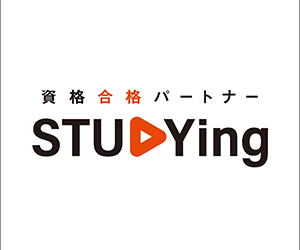第99回:「倒置」を使うとはどういうことか。

「倒置」を使った表現も合わせて確認してみましょう。
[広告]
確かな英語力は、日々の継続から。
その継続を後押しする、第二言語習得理論に基づいた
オンライン英語学習プログラムがあります。
英語を使う人のための、確実なスキルアップが望める
7日間の無料体験はこちらから!

“倒置法の使い方”
英語では、文の語順が逆になることがあります。この文法現象を「倒置法(Inversion)」と呼びます。倒置法には主語の前に動詞が来るタイプと、助動詞が主語の前に来て、動詞句が主語の後に続くタイプの2つがあります。
セクション1: 動詞が主語の前にくる倒置法
- 通常、文では動詞が主語に続く順序ですが、倒置法では動詞が主語の前に来ます。
- この倒置法は強調を与えるために情報の再配置を行い、文中の要素を後ろに後退させることで、その要素に焦点を当てます。
セクション2: 会話での倒置法の使用例
- 会話では、動詞と主語の順序を逆にした「Here comes + noun」と「There goes + noun」を使って、話者に向かって移動する物や人について話します。
- また、「Here comes…」は近々何かが起こることを示すためにも使われ、「There goes…」は物事(特にお金)が失われることや、電話やドアベルの音が鳴ることを表現するために使われます。
セクション3: 場所や方向を表す副詞と倒置法の使用例
- 副詞(along、away、back、down、in、off、out、upなど)とcome、fly、goなどの動詞と一緒に使用する場合、動詞を主語の前に置きます。
- これは物語文に特に見られるパターンで、出来事の変化を示すために使用されます。
セクション4: if節の代わりに倒置法を使用する例
- 特定のタイプのif節の代わりに、倒置法を使用することがあります。
- 倒置法の文は比較的形式的な表現です。否定文では短縮形は使用せず、肯定文と同じ形にします。
セクション5: 比較の際のasやthanの後の倒置法の使用例
- 正式な文書では、比較の際にasやthanの後に倒置法を使用することが一般的です。
- 注意点として、主語が代名詞の場合はasやthanの後に主語と動詞を逆にしないことです。
具体例
- Verb before subject inversion:
- Original: The cat slept peacefully.
- Inverted: Peacefully slept the cat.
- Conversation with “Here comes” and “There goes”:
- Original: The teacher is approaching.
- Inverted: Here comes the teacher.
- Original: The train is leaving the station.
- Inverted: There goes the train.
- Inversion instead of if-clauses:
- Original: If you have any questions, please let me know.
- Inverted: Should you have any questions, please let me know.
- Original: If it rains tomorrow, we’ll stay indoors.
- Inverted: Were it to rain tomorrow, we’d stay indoors.
- Inversion after “as” and “than” in comparisons:
- Original: John sings beautifully, as does his sister.
- Inverted: Beautifully sings John, as does his sister.
- Original: She runs faster than her friends do.
- Inverted: Faster runs she than her friends.
[広告]
TOEICのスコアを上げたいけれど、
まとまった勉強時間が取れなくて困っている…
なら、細かいスキマの時間を使いながら、
少しずつスキルを積み重ねてみてはどうでしょう。
スマホ1つでスコアアップが出来る、
オンライン講座のリンクはこちらから。

Q. この文法はどうやって使うのでしょうか?
A. 今回の文法を活用した会話文を見てみましょう。

I hope the party starts soon.
(パーティーが早く始まるといいな。)

Here comes the music, the party is about to start!
(音楽がなり始めたよ。もうすぐパーティーが始まるよ!)

Great! I’ve been looking forward to dancing all night.
(いいね!一晩中踊るのを楽しみにしてたんだ。)

Well, get ready to show off your moves because here comes the DJ!
(じゃあ、踊りの腕を披露する準備をして。DJが来たよ!)

Awesome! I love their music. The dance floor is going to be packed in no time.
(そうだね!彼らの音楽が大好きなんだ。ダンスフロアはすぐに満員になるね。)

And there goes the crowd, rushing towards the beats. It’s going to be a night to remember!
(皆が音楽の鳴る方に向かって急いでいくんだ。忘れられない夜になるよ!)

I can already feel the energy in the air. Let’s join them and have an amazing time!
(空気中にエネルギーを感じられるよ。一緒に参加して素晴らしい時間を過ごそう!)

Absolutely! Let’s dive in and make this party unforgettable. Here we go!
(そうだね!早く参加して、このパーティーを忘れられないものにしよう!)
[広告]
ロゼッタストーン・ラーニングセンターで、最先端の教育制度を活用して英語を学びませんか?私たちは個々の学習ペースに合わせてeラーニングと対面教育を組み合わせ、柔軟な学習環境を提供しています。自宅でのeラーニングと対面教育のメリットを最大限に活かし、あなたの英語学習をサポートします。最新のテクノロジーと個別の指導が組み合わさった当センターで、自由な学習スタイルを体験してみませんか?英語学習を楽しく効果的に進めるための環境がここにあります。新たな一歩を踏み出して、新しい英語学習の旅に参加しましょう!

Q. この記事の要点は?
A. 「倒置」の基本と表現を確認しました。
- Types of inversion:
- Verb before subject inversion: Inversion where the verb comes before the subject, often optional.
- Auxiliary before subject inversion: Inversion where the auxiliary comes before the subject and the rest of the verb phrase follows the subject, usually necessary.
- Inversion is used to re-order information for emphasis and focus.
- Conversation and movement:
- “Here comes + noun” and “There goes + noun” are used in conversation to talk about things and people moving towards or away from the speaker.
- Inversion of verb and subject occurs in these expressions.
- “Here comes…” indicates something happening soon, while “There goes…” refers to lost things or ringing sounds.
- Adverbs expressing direction of movement can also cause inversion when used with verbs like come, fly, go, etc.
- Clauses with inversion instead of if-clauses:
- Inversion can be used instead of certain types of if-clauses.
- It is a more formal usage.
- Examples include using inversion with “were” or “should” instead of “if” in conditional sentences.
- Inversion after as and than in comparisons:
- In formal written language, inversion is commonly used after “as” and “than” in comparisons.
- Subject and verb are inverted.
- Pronouns are not inverted in these cases.
英会話を始めてみたいけれど、どのサービスが良いか分からない…
そんな方は、まず、この記事で3つのサービスを比べてみてはいかがでしょうか?
英語力を効率良く伸ばすことができるサービス3選です。

次回の文法解説は?
「倒置」を使った表現②
この記事を作る際に参考にした文法の解説書になります。
すべて英語で書かれていますが、練習問題が付いてます。
イギリス英語なので、スペル等の表記が異なる部分もありますが、
「使い方を練習したい」「繰り返し問題を解きたい」
という方は、使ってみても良いかもしれません。

関連記事一覧
他の文法解説記事を検索できます。





-320x180.jpg)





コメント